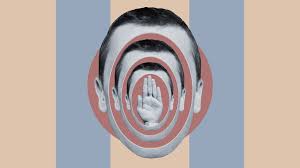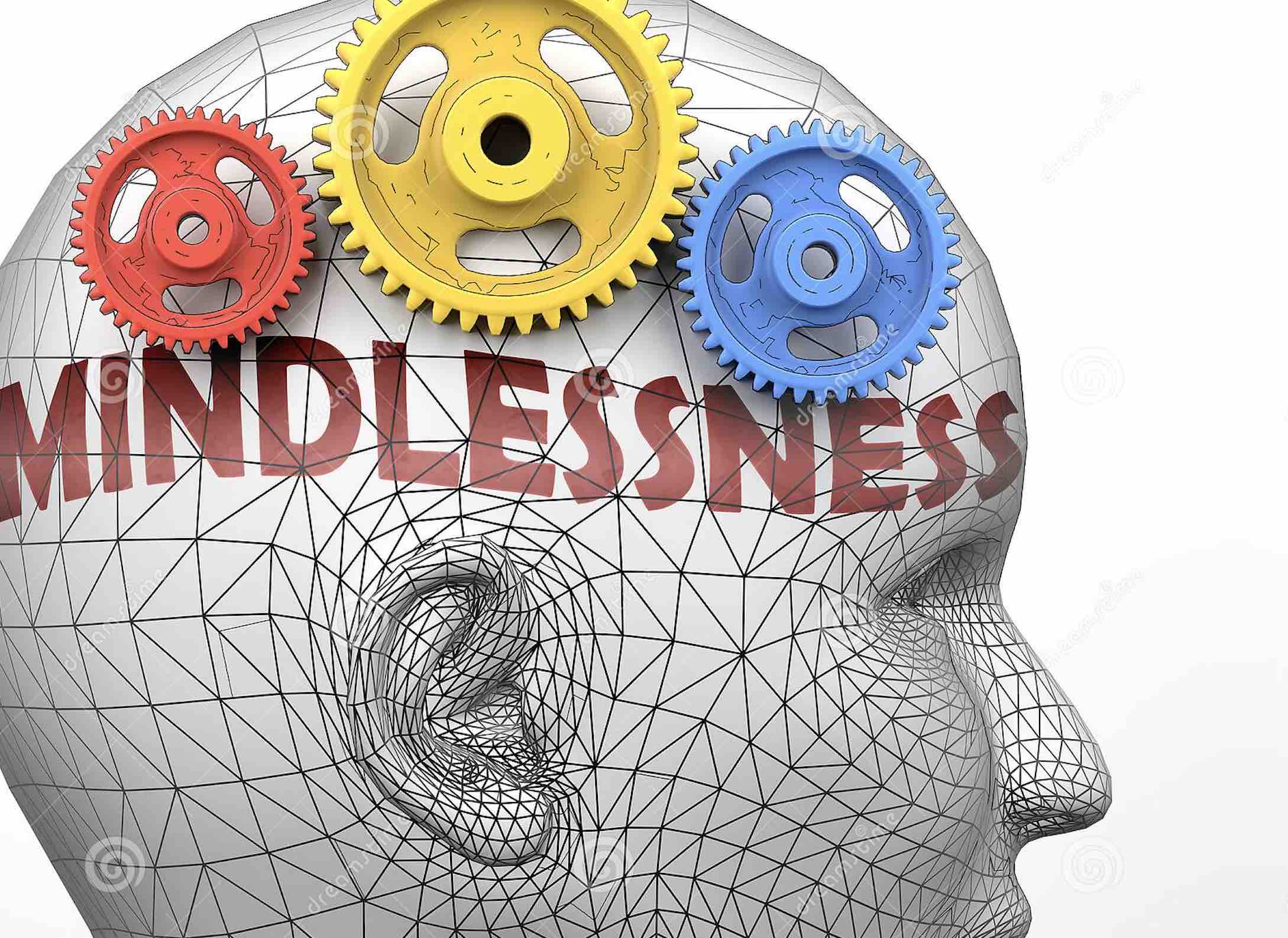“Be present.”
I’m sure that you’re more than familiar with the expression.
This is the mantra of mindfulness meditation and a key to self-awareness and acceptance. In mindfulness exercises, the goal is to perform routine activities with a heightened sense of attention. Take the time to experience your environment with all of your senses—touch, sound, sight, smell and taste.
That’s all well and good – until I have to get 10 kilos of tomatoes chopped for a soup that will be served to a party of waiting (and paying) guests within the next hour. It’s in those moments that mindfulness starts to trip me up. I want the knife in my hand to just darn well chop without having to think about it so much. I want to be present, be mindful (even though my mind is starting to think about all the other tasks I’ll need to do to make sure that the diners are going to get fed on time), I don’t want to chop off my fingers because I’m so hyped-up, adrenaline-filled and distracted that I’m not concentrating….. To hell with the lovely smell of those tomatoes that still have the scent of the vines on them, to hell with the slight burning tingle of the acidic juice as it seeps into a cut on my fingers from a couple of days ago, and I don’t care about the fire engine red colour of these gorgeous plump fruits. I want to be quick. I just need to get the job done.
Sound familiar?
 Mindfulness may indeed have psychological benefits. Earlier this year, a synthesis of randomised controlled trials revealed that mindfulness-based interventions had small to moderate benefits for a number of health outcomes, including stress, anxiety and depression. That said, the effects of mindfulness were smaller and less consistent when compared with those of other therapies, and some effects appeared to fade months after the intervention. Taken together, the results suggest that mindfulness-based interventions may be better than nothing for some outcomes but that more research is needed to compare mindfulness with other therapies.
Mindfulness may indeed have psychological benefits. Earlier this year, a synthesis of randomised controlled trials revealed that mindfulness-based interventions had small to moderate benefits for a number of health outcomes, including stress, anxiety and depression. That said, the effects of mindfulness were smaller and less consistent when compared with those of other therapies, and some effects appeared to fade months after the intervention. Taken together, the results suggest that mindfulness-based interventions may be better than nothing for some outcomes but that more research is needed to compare mindfulness with other therapies.
One thing the mindfulness-based interventions had in common is that they all attempted to cultivate focus on the present moment via multiple sessions of meditation practice.
Although mindfulness has its merits, psychological research has also revealed that in some circumstances it’s important to be mindless. That is, as we develop skill in complex tasks, we can perform them with increasing facility until attention seems to be unnecessary. Everyday examples range from riding a bike to chopping tomatoes to brushing your teeth.
Underlying this state of “automaticity” (as cognitive psychologists call it) are mental processes that can be executed without paying attention to them. These processes run off without conscious awareness—a chain reaction of mental events. We don’t perform all tasks automatically, but many can be performed this way once they are well practiced.
 To be clear, paying attention is important when learning a new skill. In a 2019 study, measures of cognitive ability that tapped the capacity to focus attention predicted novice pianists’ ability to learn and play “Happy Birthday to You.”
To be clear, paying attention is important when learning a new skill. In a 2019 study, measures of cognitive ability that tapped the capacity to focus attention predicted novice pianists’ ability to learn and play “Happy Birthday to You.”
But expertise research has also revealed that paying too much attention to what you’re doing can have damaging effects, particularly when you perform well-practiced skills. In fact, this is one reason why some experts appear to “choke under pressure”: they think too much about the mechanics of the task at hand.
In a classic 2002 study, cognitive scientist Sian Beilock and her colleagues had skilled golfers attempt to sink putts under different experimental conditions. In one scenario, the golfers were simply instructed to pay attention to the swing of their club and say “stop” when they finished their swing. In another condition, they were instructed to listen for a target sound while ignoring other noises and say the word “tone” when they heard the target sound.
Counterintuitively, the skilled golfers performed substantially worse when they focused on their swing than when they paid attention to irrelevant sounds. The effect of paying attention to their swing was so damaging that the golfers actually did better when they were warming up before the experiment began.
 More recently (2013), psychologist Yannick Balk and his colleagues had golfers try different interventions designed to lessen the effects of performance pressure. The researchers induced performance pressure by videotaping the participants, telling them that their score sheets would be posted publicly at the clubhouse and incentivising strong performance with coupons to the golf shop.
More recently (2013), psychologist Yannick Balk and his colleagues had golfers try different interventions designed to lessen the effects of performance pressure. The researchers induced performance pressure by videotaping the participants, telling them that their score sheets would be posted publicly at the clubhouse and incentivising strong performance with coupons to the golf shop.
Without an intervention, the golfers performed significantly worse under pressure. Yet participants who were encouraged to think about something else—specifically, a song they knew by heart—improved when the stakes were high. (It is worth cautioning that these results probably need to be replicated in larger samples and across different contexts).
 Nevertheless, the important message from this research is that focusing too carefully on the execution of well-practiced motor sequences can cause mistakes. Of course, we should not resign to go through life on autopilot, missing opportunities to make deeper
Nevertheless, the important message from this research is that focusing too carefully on the execution of well-practiced motor sequences can cause mistakes. Of course, we should not resign to go through life on autopilot, missing opportunities to make deeper
connections with ourselves, one another and our environment. But there are situations where we should let ‘mindlessness’ (=automaticity) take over. The next time you ride a bike – or have to chop far too many tomatoes – don’t overthink it…..
REFERENCES:
Simon B. Goldberg et al.
The Empirical Status of Mindfulness-Based Interventions: A Systematic Review of 44 Meta-Analyses of Randomized Controlled Trials.
Perspectives on Psychological Science. February 2021.
Alexander P. Burgoyne, Lauren Julius Harris and David Z. Hambrick,
Predicting piano skill acquisition in beginners: The role of general intelligence, music aptitude, and mindset,
Intelligence. 2019, volume 76, 101383,
https://doi.org/10.1016/j.intell.2019.101383
Sian L. Beilock et al.
When paying attention becomes counterproductive: Impact of divided versus skill-focused attention on novice and experienced performance of sensorimotor skills.
Journal of Experimental Psychology: Applied. 2002, 8(1), 6–16.
https://doi.org/10.1037/1076-898X.8.1.6
Yannick A. Balk et al.
Coping Under Pressure: Employing Emotion Regulation Strategies to Enhance Performance Under Pressure
in Journal of Sport and Exercise Psychology. 2013, volume 35(4), 408-418.
https://doi.org/10.1123/jsep.35.4.408
